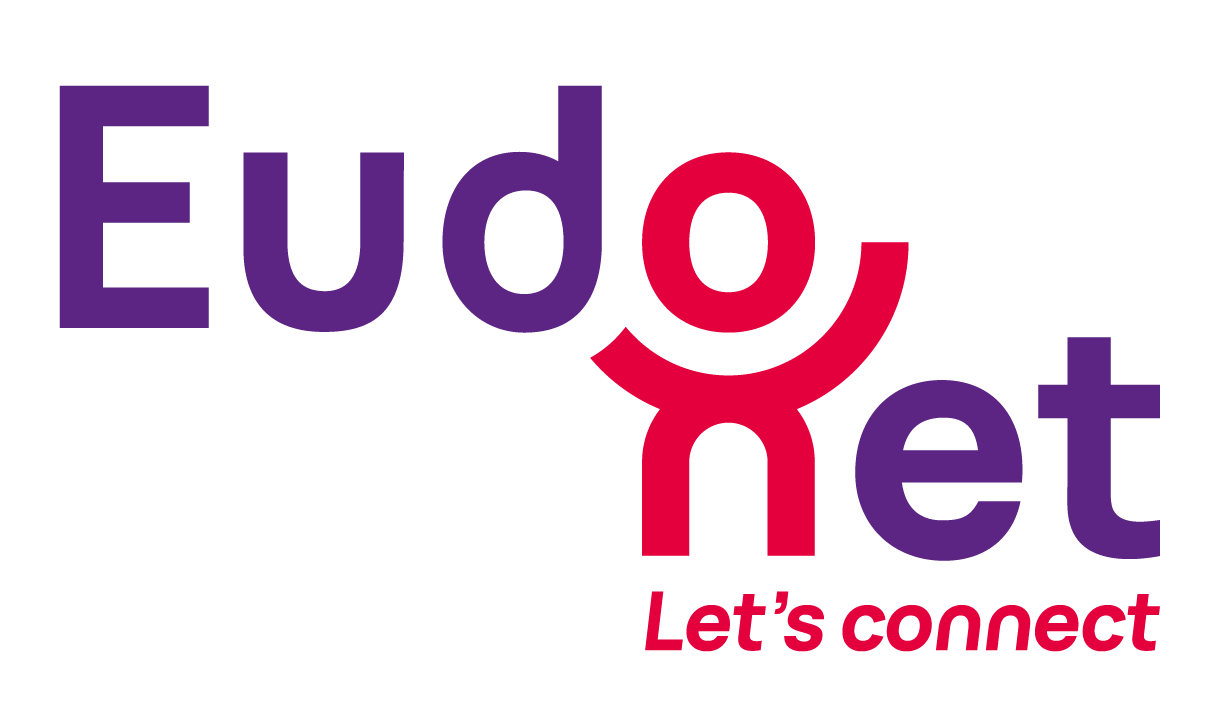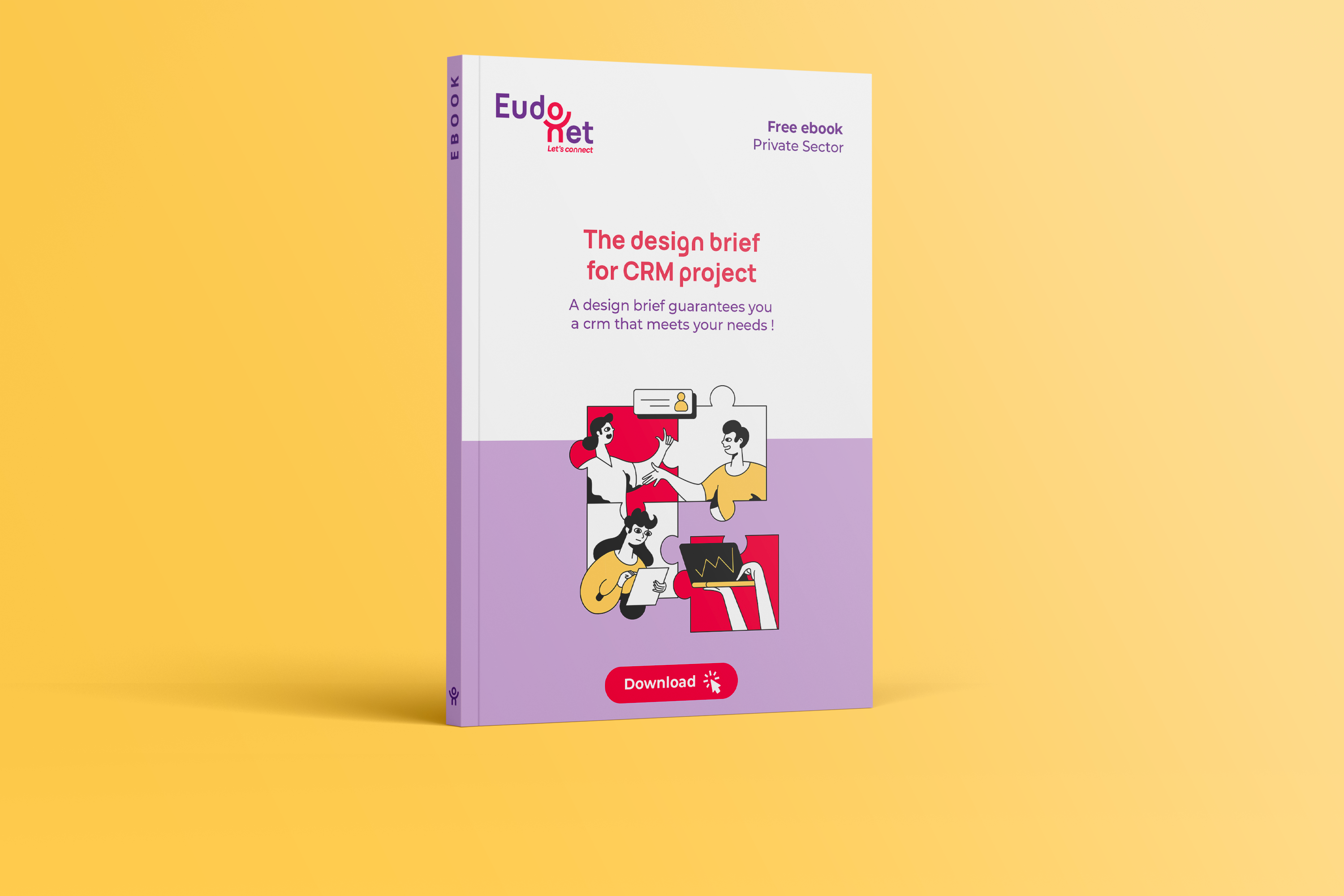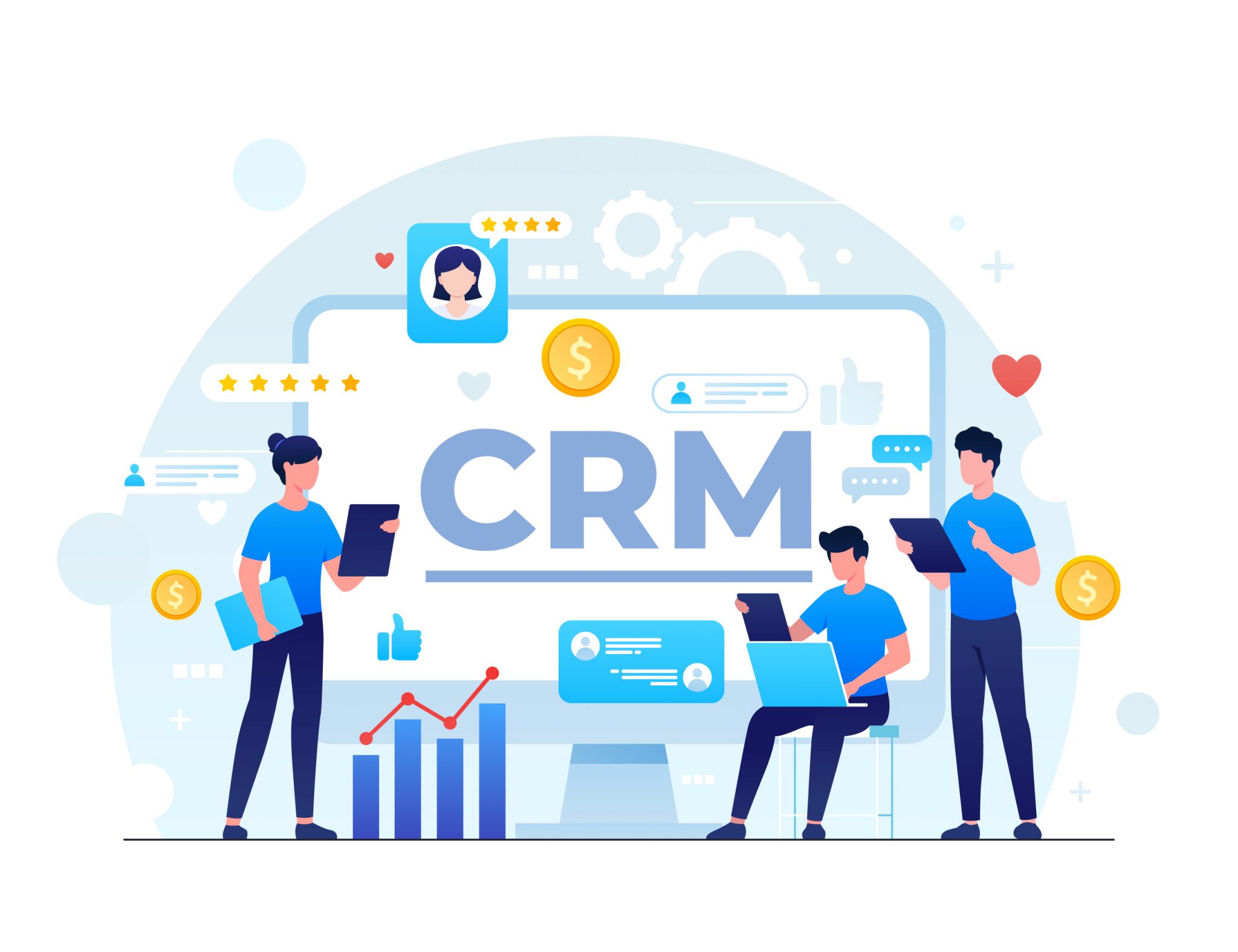Marketing automation has become essential in modern marketing strategy. It allows organisations, NGOs, and businesses to automate repetitive tasks, personalise communications, and enhance community engagement. But, to fully leverage marketing automation’s potential, integrating your CRM solution is crucial. Discover the possibilities by combining these two tools!
Digital marketing constantly evolves, offering elaborated tools to enhance customer relationships and optimise communication strategies. Among these tools, marketing automation and Your Customer Relationship Management (CRM) stand out for their ability to transform organisation-client interactions.
That’s why implementing a CRM to fully benefit from marketing automation involves assessing the needs of your business, association or foundation, which becomes a significant option.
It’s crucial to identify specific objectives you want to achieve with this tool: automating repetitive tasks, improving community engagement, personalising communications, increasing productivity, saving time…
What is Marketing Automation ?
Marketing automation refers to using software to automate repetitive marketing tasks. This includes email sending, social media management, and even some advertising actions.
Its primary goal is to increase marketing campaign efficiency and allow teams to focus on higher value-added tasks. Marketing automation revolutionises marketing by automating repetitive tasks and optimising the sending of personalised messages. It leverages centralised customer data by integrating them into automated workflows. These workflows define actions based on prospects’ (or clients’) behaviour and their position in the sales funnel.
Benefits of Marketing Automation for Your Customer Relationship
Marketing automation enriches customer relationships by enabling targeted and personalised communication. It ensures precise tracking of interactions with customers (volunteers or permanent), facilitating the sending of tailored content based on their interests and behaviour. This increases engagement, strengthens loyalty, and enhances the user experience.
It’s a valuable tool for improving your customer relationships, offering personalised and targeted communication, reinforcing engagement and loyalty. Through automation, your organisations can send messages tailored to the interests and behaviour of each customer or prospect, making each interaction more relevant and engaging.
One of the main advantages of marketing automation is its ability to personalise communications on a large scale. By using customer data, such as previous interaction history, organisations can create messages that resonate personally with each individual. This approach increases the effectiveness of marketing campaigns by ensuring that customers receive content that matches their specific needs and preferences.
Also, marketing automation allows detailed tracking of interactions, providing valuable insights that can be used to refine marketing strategies and improve the customer experience. By better understanding how customers, volunteers, or members interact with your organisation, teams can adjust their communications to better meet various expectations, leading to increased satisfaction and strengthened loyalty.
Operational efficiency is another significant advantage of marketing automation. By automating repetitive tasks, marketing teams can focus on more strategic initiatives, such as data analysis and creative development, then optimising resources and reducing costs. Finally, marketing automation plays a crucial role in increasing engagement and conversion.
By targeting customers with messages matching their journey and profile, businesses can encourage deeper engagement and stimulate conversions. In summary, marketing automation enriches your customer relationships by offering targeted and personalised communication, improving the user experience, and increasing the effectiveness of marketing campaigns.
The Role of Your CRM for Your NPO, Foundation, or Organisation
Your CRM goes beyond simple contact management. It centralises all interactions between your business and its customers, offering a 360-degree view of each customer. This enables a better understanding of your customer needs and expectations, then improving service quality and customer satisfaction.
Imagine a treasure chest where each gold coin is a precious customer data. The CRM is that chest, gathering and securing a rich treasure trove of information in one accessible place.
CRM Marketing: Benefits for Your Business
Centralisation of Your Customer Data
Your CRM gathers all your customer data in one place, making information access quick and easy for your entire organisation. This centralisation promotes better data analysis and informed decision-making. After implementing your CRM solution, you need to start actively collecting and managing data from your members, partners, volunteers, donors, patrons, prospects… This includes entering relevant information into the CRM, such as their contact details and preferences, their donation history, event participation, or volunteer hours… By centralising this data, your teams will have faster and easier access to valuable information.
This centralisation goes beyond simplifying access to information; it transforms your approach to customer relationship management into a strategic adventure filled with discoveries. As soon as your CRM solution is installed, a new era begins. You are ready to seriously collect and manage a range of data about your members, partners, volunteers, donors, patrons, and prospects. Think of each piece of information as a golden thread woven into a rich tapestry: detailed contacts, individual preferences, rich donation histories, enthusiastic event participation, and dedicated volunteer hours. Each of these data contributes to a complete and nuanced portrait of each actor in your universe.
But why is this centralisation so crucial? Imagine being able to dive into this treasure trove of information with the ease of a skilled navigator, quickly finding what you are looking for and sometimes discovering hidden treasures of insights about your customers. This is the adventure promised by the CRM. Not only do your teams have instant access to valuable information, but this data goldmine also allows for in-depth analysis. You will be able to identify trends, anticipate needs, and personalise your interactions as never before.
This centralisation is not just about convenience; it is the cornerstone of a revolutionary customer relationship strategy. It enables every department of your organisation, from marketing to sales to customer service, to navigate with confidence in the vast ocean of customer interactions, armed with the knowledge necessary to make informed decisions and act with precision.
With CRM as your compass, your organisation can navigate towards deeper and more meaningful relationships with its customers, transforming each interaction into an opportunity to strengthen loyalty and accelerate growth. Centralisation of your customer data becomes more than just a feature; it is the beating heart of your customer engagement strategy, fuelling every campaign, every communication, and every decision with unprecedented intelligence and relevance.
Personnalisation of Your Communication Campaigns
With precise information provided by your CRM, companies can personalise their marketing messages to truly resonate with each customer segment.
In the dynamic arena of digital marketing, the alliance of CRM (Your Customer Relationship Management) and marketing automation stands as an unbeatable duo, transforming how businesses engage, understand, and retain their customers. This strategic partnership is the engine of a revolution in personalised communication, propelling brands to unmatched successes.
The fusion of CRM and marketing automation elevates personalisation to an art. Imagine every communication campaign as a meticulously crafted work of art, where each brushstroke, each colour, each line is chosen with the intention of speaking directly to the heart of every viewer. This is exactly the effect produced when these two powers come together.
Designing Messages That Leave a Mark
Thanks to the wealth of customer data collected and analysed by the CRM, combined with the marketing automation’s ability to deploy these insights on a large scale, every marketing message becomes a personalised dialogue. It’s no longer an arrow shot in the dark, but a carefully targeted message designed to resonate with the unique desires, needs, and preferences of each segment of your audience.
The Symphony of Personnalisation
In this symphony of personalisation, each note played by marketing automation is in perfect harmony with the information orchestrated by CRM. This creates communications that not only catch attention but also establish a genuine and deep connection with the audience. Emails, SMS, push notifications, and other touchpoints become personalised expressions of the brand’s understanding and appreciation for its customers.
From Insight to Impact: Turning Data into Dialogues
It’s not just the ability to personalise that sets CRM and marketing automation apart, but their ability to transform raw data into meaningful dialogues. Every interaction is an opportunity to learn, adapt, and respond even more finely. Campaigns aren’t static; they’re dynamic, evolving based on customer reactions, behaviours, and feedback.
Forging Emotional Bonds Through Targeted Communication
Beyond campaign efficiency, the deep personalisation enabled by CRM and marketing automation builds lasting emotional bonds with customers. By feeling unique and valued, customers develop an affinity and loyalty to the brand going beyond ordinary commercial transactions. Messages are no longer perceived as mere sales tools but as expressions of the brand’s commitment to its customers.
In today’s competitive world, where consumer attention is constantly solicited, standing out with a personalised communication strategy is not only advantageous but essential. The winning duo of CRM and marketing automation provides businesses with the keys to not only reach their audience but to resonate with them in a deeply personal and memorable way. By mastering this art of personalisation, brands can weave stories of lasting success, built on strong foundations of genuine understanding and appreciation of their customers.
Segmenting Your Customers With Your Marketing CRM
The art of customer segmentation within your CRM transforms an undifferentiated mass of customer data into targeted groups, each with its own characteristics, needs, and preferences. This detailed segmentation is the first step towards truly personalised and impactful communication. Imagine being able to divide your customer base like a chef cuts their ingredients, with precision and purpose. Your CRM allows you to create segments based on a multitude of criteria: demographics, behavioural, transactional, and more.
Each segment can be adjusted to reflect the nuances of your audience, making each campaign not only relevant but also extremely engaging. The detailed segmentation enabled by your CRM helps target marketing campaigns more precisely, thereby increasing their effectiveness and relevance. By leveraging these segments, your marketing campaigns can be finely targeted to resonate with the specifics of each group. Whether it’s an exclusive offer for loyal customers, an activation campaign for dormant users, or personalised promotions for hot prospects, segmentation ensures that the right message reaches the right person at the right time.
Optimising Lead Management with Your CRM
Your CRM enhances the lead qualification process, ensuring that only the most promising prospects are pursued, optimising time and resources. Lead management is one of the most complex challenges in marketing and sales. With your CRM, this challenge turns into an opportunity through smarter lead qualification and tracking. Your CRM doesn’t just collect leads; it analyses, scores, and qualifies them, ensuring that your team focuses its efforts on prospects most likely to convert. By filtering leads according to their potential, your CRM optimises the use of your resources and maximises your conversion chances. Once leads are qualified, your CRM becomes a powerful nurturing tool. Each lead can be followed up with a series of personalised communications designed to gradually guide the prospect through the sales funnel. This methodical and personalised approach significantly increases conversion rates.
Tracking and Reporting Your Performance
The reporting tools integrated into your CRM provide valuable insights into campaign performance, allowing real-time adjustments to strategies to maximise return on investment. The reporting tools integrated into your CRM are not just dashboards or spreadsheets; they are the pulse of your marketing strategy.
With your CRM, every campaign is under constant monitoring, providing you with real-time data on performance. You can instantly see what works and what doesn’t, allowing you to quickly adjust your strategies.
Your CRM reporting tools give you a clear view of the return on investment (ROI) of each campaign. This means you can allocate your budget more efficiently, focusing your spending where it has the most impact, and adjusting your strategies to maximise results.
CRM Marketing Automation: A Winning Duo
Advantages of Merging These Two Softwares
Combining marketing automation with your CRM creates a powerful ecosystem for customer relationship management. This not only automates communications but also makes them extremely targeted and personalised, based on rich and accurate data. The fusion of CRM with marketing automation is like the meeting of mind and machine, creating an ecosystem where every customer interaction is both automated and intensely personalised.
Unified Ecosystem for Your Customer Relationship
This combination enables the creation of automated workflows that come to life through the rich data of your CRM. Whether it’s triggering a welcome email, a follow-up for abandoned cart, or a re-engagement campaign, each action is informed by a deep understanding of the customer, making every communication incredibly relevant.
Intelligent Automation and Targeted Communication
At the heart of this synergy lies the intelligent automation of repetitive marketing tasks, freeing up teams to focus on creativity and strategy. Together, your CRM and marketing automation transform customer relationship management, offering a seamless experience that delights customers and drives sustainable business growth.
Creating automated workflows is one of the main components of marketing automation. You can use your CRM solution to automate marketing tasks… But have you identified the steps to do it?
Setting up your CRM for Your Organisation: Key Steps
The project around marketing automation requires stepping back to understand the needs of your organisation, whether you’re a foundation, a professional association, or a company.
Here are some tips:
Assessment of Needs: Identify what you expect from your CRM and marketing automation in terms of customer relationship management, lead generation, and performance tracking.
Software Selection: Select solutions that integrate well together and meet your specific needs in terms of features and budget.
Integration and Configuration: Configure the software to work together, ensuring that data flows freely between systems for maximum efficiency.
Team Training: Train your teams to use these tools so they can make the most of them.
Launch your campaigns, monitor performance, and adjust your strategy as needed for continuous improvement.
In summary, the association between your CRM and marketing automation leads the way for revolutionary customer relationship management, marked by personalisation.

 By Marc Thévenin
By Marc Thévenin 



